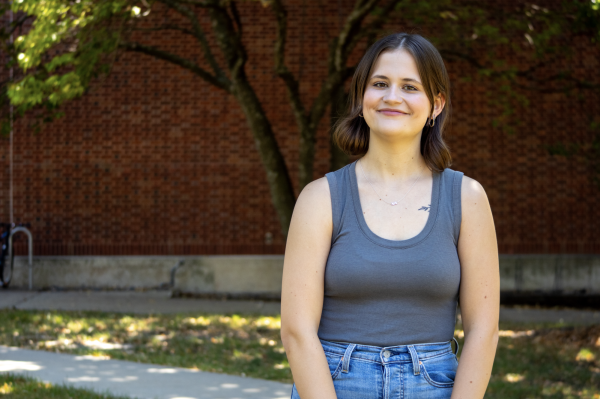One of the initiatives within Drake University’s “The Ones” fundraising campaign is the Jay N. Darling Institute, named after a journalist and conservation activist. According to the campaign website for The Ones, this initiative will involve “partnering with rural communities to bolster their economic, social and cultural vibrancy.”
“We’ve had rural communities across the Midwest already approach us about watershed management plans, so think water quality, water quantity, greenspace improvement, mural and art installation in city squares, providing support services for things like Girls Who Code, where the teacher resources and the district resources might be a little limiting,” Summerville said. “And then we’ve had a community approach us about working to help implement part of their economic development plan. So I think the nature of the projects are going to vary based on community to community and need to need.”
According to the Drake Agricultural Law Center director and assistant professor of law Jennifer Zwagerman, one of the main goals of this project is to connect Drake and rural Iowa in a way that supports both parties.
The Darling Institute is one of four initiatives in the campaign that includes $5,000 renewable scholarships for five students involved with the Institute, according to Drake President Marty Martin and Vice President for Advancement John Smith.
Summerville said the Institute will be up and running in the fall of 2022, and students selected for the program will receive scholarship offers in the spring. These students will be known as the Darling Corps.
“It’s modeled quite closely on what an AmeriCorps or an extension or a Peace Corps model might look like,” Summerville said.
According to Zwagerman, many of the specific details of this initiative are still up in the air. However, the Agricultural Law Center has previously done work involving rural food security, rural justice, rural development and issues of data privacy in regards to farming and agriculture. This initiative would continue similar work.
“Basically, we’re going to continue to do the work that we do and work together to try and have a stronger reach,” Zwagerman said. “And that’s going to be done through classes, and what we offer in the classroom to students, opportunities for internships and different projects they can work on, but also in a lot of different public education programs.”
According to Zwagerman, collaboration between departments and areas of study at Drake was present in the development of the initiative. Zwagerman said she believes that the program will be beneficial to both students who are from rural areas and those who want to live there post-graduation.
“At Drake and in the University, we don’t have to silo issues in one college or one department,” Zwagerman said.
Summerville said that Drake is fundraising for the institute’s scholarships and the Fund for Rural America. The fund aims to “provide faculty support and offset 100 percent of the logistical cost of implementing a project” and has a $5 million fundraising goal, Summerville said. He added that the initiative would provide funding for faculty research.
“And so, as there are faculty that are interested in being engaged in rural America, we will try to match funds from that pool to meet their needs,” Summerville said. “So obviously, we’ve got to populate that fund with dollars.”
Ultimately, Zwagerman stressed the importance of a strong rural community in other areas of success, including counteracting climate change.
“I think it’s important for people to recognize that having a strong rural community is something that is important to everyone because of what they contribute,” Zwagerman said. “…All of that is part of rural communities and when it comes to things about areas where we can work on climate change, [that] involves rural communities and land use and all those things that it’s important for all of us to be involved in, even if you’re not living in that rural community yourself.”








